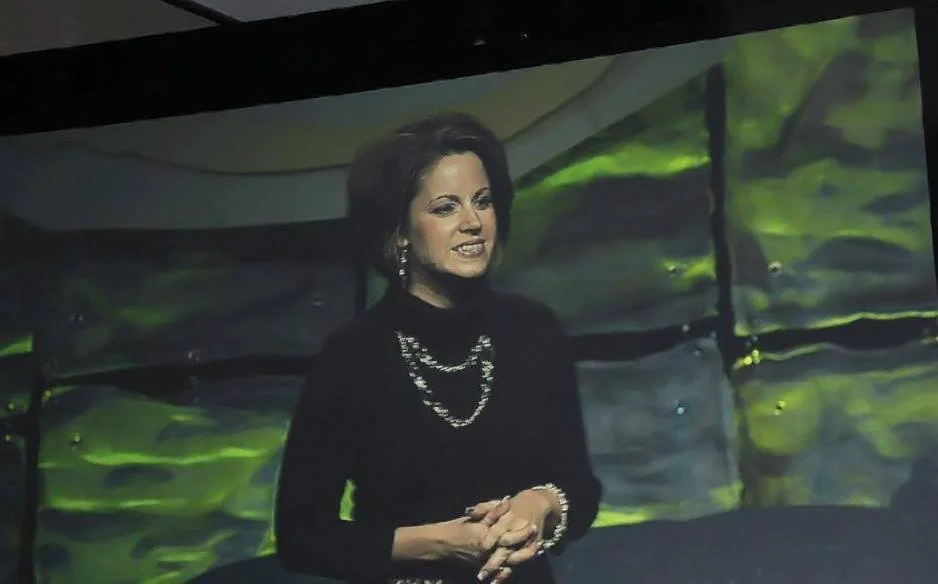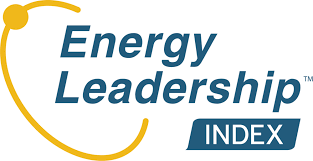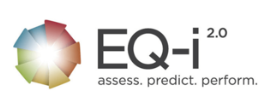training and coaching solutions
in-person and virtual training
The following are full-day trainings (some can be adapted to half-day and multi-day) currently offered in-person and virtually. Jen also custom creates training upon request. Please reach out to discuss the needs of your team or organization.
Confidence in Conflict: Conflict Resolution Skills and Strategies
Confident Communication: Communication Skills for Workplace Effectiveness
Introduction to Coaching Skills for Leaders
Introduction to Appreciative Inquiry
Creating a Workplace Culture of Accountability
Understanding and Building Your Emotional Intelligence (EQ-i 2.0 assessment or Talentsmart’s Emotional Intelligence 2.0 utilized)
The Emotionally Intelligent Leader (EQ-i 2.0 assessment or Talentsmart’s Emotional Intelligence 2.0 utilized)
Stress Happens! Strategies for Peace and Productivity in the Workplace
The Five Dysfunctions of a Team™: Increasing Overall Team Effectiveness
Generational Differences in the Workplace
Leading Generationally Diverse Teams
Leading Yourself, Leading Others: High-Conscious Leadership for 21st Century Leaders (ELI Assessment utilized)
Navigating and Embracing Change: It’s An “Inside Job”
The Ideal Leader: Identifying and Developing the Leader Within
Time Mastery: Prioritization, Delegation, and Choice Management Skills
Appreciating Differences- Myers-Briggs® Workshop
Know Your Number: An Introduction to the Enneagram and the Workplace
COR.E Leadership Dynamics — Influencers & Disciplines for Success
speaking engagements
The following are 60-90 minute Lunch and Learn and Keynote topics Jen has delivered in-person and virtually. Jen also custom creates sessions upon request. Please reach out to discuss the needs of your team or organization.
Embrace the Suck: What Obstacles Teach Us
The Balance Myth
Choice Management Strategies to Increase Productivity and Reduce Stress
The Authenticity Advantage: Personal Branding in the Workplace
Personal Accountability in the Workplace
Aligned! Engagement Through Aligning Personal and Workplace Values
Navigating and Embracing Change
Mastering Mindset: An Introduction to the Concepts of Energy Leadership™
Stress Happens! Strategies for Peace and Productivity
Generational Differences in the Workplace
Own Your Own Engagement
The Emotional Intelligence Advantage!
Appreciative inquiry
Appreciative Inquiry is a strengths-based approach to identifying and utilizing the talents, strengths, and resources present within an organization- uncovering the best within the system and collaborating to create an ideal future. Appreciative Inquiry is a shift from a problem-focus to one of possibility!
Appreciative Inquiry can be used in many situations. Just a few:
Support positive change
Improve employee engagement
Organizational improvement
Creation of new services or products
Enhance customer relations
Improve planning and/or processes
Define and create environments/cultures of trust, accountability, and engagement
Training: Introduction to Appreciative Inquiry
This training is designed to introduce the mindset, skills, and process of Appreciative Inquiry so participants can facilitate their own Appreciative Inquiry sessions. Learn the foundational principles of Appreciative Inquiry, the 5D cycle, tools and techniques to create community, collaboration, and transformational inquiries, and creative tools for engaging with Appreciative Inquiry in a powerful and meaningful way.
Appreciative inquiry facilitation
Contact Jen to facilitate your change or improvement process. A facilitator is non-judgmental and has no other agenda than to support your collaborative process. She will partner closely with you to identify and leverage strengths, create a vision of what you could become, and create actionable steps towards this new vision and purpose.
Coaching
Jen is a Certified Professional Coach, PCC Certified through the International Coaching Federation, and an Energy Leadership Master Practitioner. Her clients appreciate her blend of compassionate and empathetic listening, tough direction when needed, and her sense of humor. Jen is adept at guiding and supporting self-awareness, personal and professional growth, goal-setting, and action planning.
common areas for coaching support
All coaching engagements are unique and depend upon what you bring to the sessions- your personal style and what you hope to learn or change. Some common areas for coaching include, but are not limited to:
Developing leadership presence/influence
Increasing self-awareness
Developing communication skills
Building or enhancing relationships
Managing stress, energy, and time
Understanding and improving Emotional Intelligence
Navigating transition and managing change
Overcoming setbacks and disappointment
Managing difficult relationships
Leadership coaching
emerging leaders
Coaching for individuals exploring leadership or just embarking on their leadership journey. Gain insight into current strengths and blind spots, unique ways of seeing yourself and the world, and what kind of leader you wish to become. The coaching process is devoted to self-awareness and developing skills, tools, experiences, and mindsets for leadership success.
entry-level leaders
Coaching sessions are for newer leaders looking to increase leadership presence, build courage to make tough decisions, create a culture of trust and accountability, increase resiliency, expand emotional intelligence, and manage difficult relationships.
Mid-Senior level leaders
Coaching sessions cover similar topics as those of newer leaders as well as focusing on increasing collaboration, change management, developing talent, communicating vision, and engaging employees.
group coaching
Group coaching is for groups where the individuals have a common theme or competency they all wish to develop. It is a facilitated process that leverages the knowledge and resources of the group as they work on the common theme, even if they have different performance goals. An example is a group of managers who are facing similar challenges and are looking to share best practices, solutions, and learn new skills and behaviors to address the challenges. Jen facilitates these sessions, coaching the individuals, and providing training where needed.
team coaching
Team coaching is reserved for in-tact teams (the team leader and their direct reports) working together towards common goals. Jen facilitates and challenges the team as a team to maximize their collective performance. Jen works to help the team increase awareness of their current patterns of thought and behaviors, challenges them to leverage their collective and individual strengths and resources, and supports the development of their relationships and processes for increased performance. Common themes to address are goal and vision clarification, team decision-making processes, communication, navigating change effectively, and team facilitation, trust, and accountability.
assessments
A variety of assessment tools are available. These tools enhance self-awareness and the awareness of how others may differ from us.
Assessments are great for:
creating self-awareness and can be purchased along with a debrief session.
supporting the coaching process and providing insight into an individual’s attitudes, personality, and core values.
focusing team workshops centered around understanding the assessment results personally and how they can be used to create trust, enhanced communication, and understanding of differences in teams and key work and personal relationships.
In addition to the assessments described, Jennifer has experience with the following:
Gallup Q 12, Employee Engagement Assessment
The Thomas-Kilmann Conflict Mode Instrument (TKI)
FIRO-B
The Five Dysfunctions of a Team Assessment
Values Assessments
StrengthsFinder
Enneagram
energy Leadership index™
The Energy Leadership Index assessment provides insights into how you show up in various aspects of your life. It measures your ability to lead people, including yourself, to take positive, productive, and sustainable action. The assessment also measures how involved or engaged you are in your roles and tasks on the job and at home. Finally, it measures your potential leadership ability by your level of consciousness, your awareness about who you are, and what life is about. Studies prove that higher levels of consciousness are associated with higher levels of success in life, including success in finances, relationships, personal development, achievement, and more.
energy Leadership index™ 360º Feedback Systems
A 360º feedback system is a process by which multiple people in your professional life rate you according to their observations of you. These raters can come from any aspect of your professional life. The assessment gives understanding to how someone is seen through others’ eyes and how intentions and image are coming across. This information offers opportunity to improve your performance on the job as well as to improve your relationships.
The Myers-Briggs Type Indicator® (MBTI®) assessment
The Myers-Briggs Type Indicator® (MBTI®) assessment is the most widely used personality assessment in the world. With a proven record of reliability spanning more than 50 years, it offers a foundation for understanding individual differences and applying that understanding to the ways people think, communicate, and interact. Versatile and dependable, the MBTI tool sets the stage for lifelong learning and development.
eQ-i 2.0™
The Emotional Quotient Inventory (EQ-i2.0) is the world’s leading measure of emotional intelligence, applying decades of research to support effective human performance and development. The assessment is an online self-rating tool with the option of a multi-rater EQ 360. Emotional intelligence skills are critical for building relationships and teams, resolving conflict, solving problems, leading effectively and building resilience. The EQ-i 2.0 provides you with a detailed assessment of your areas of strength and potential areas for development. Your comprehensive report provides you with your overall results, and presents these using the five EQ composite areas: Self-Perception, Self-Expression, Interpersonal, Decision Making and Stress Management. The report also provides a detailed interpretation of how effectively you are using the 15 EQ competencies and how, by balancing these competencies, you can significantly improve your well-being, workplace and leadership performance, interpersonal relationships and communication.










